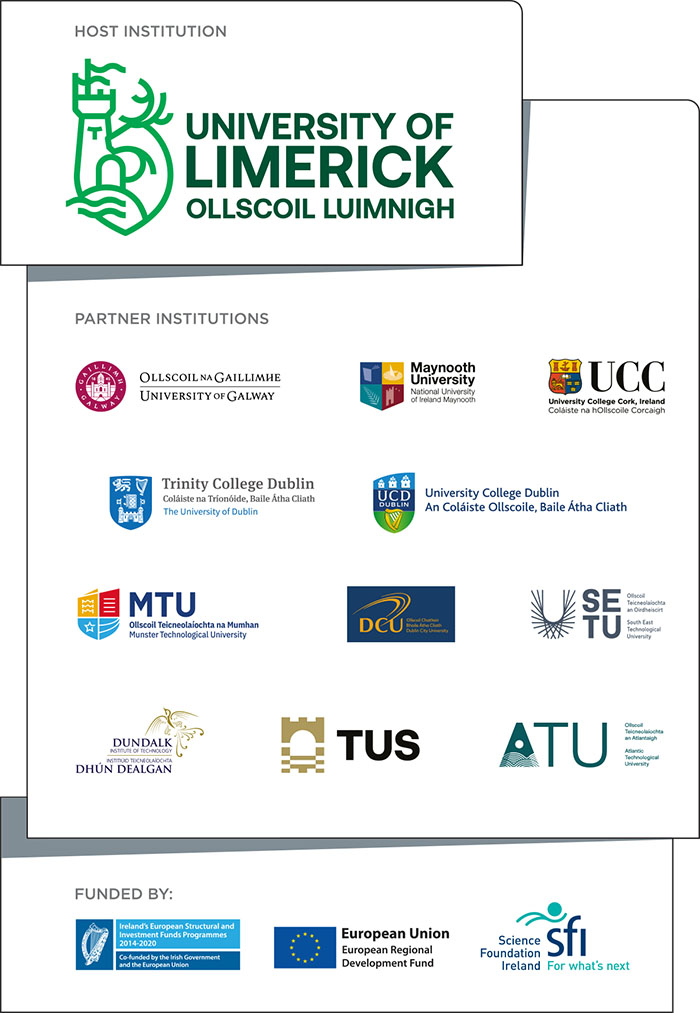Minister announces investment in Lero research to improve Covid-19 contact tracing
You are here
A project led by Lero, the SFI Research Centre for Software, at University of Limerick is one of 11 new COVID-19 research and innovation projects to receive investment, it was announced today.
Minister for Business, Enterprise and Innovation, Heather Humphreys TD announced a total investment of €1.4 million in 11 projects under the SFI-coordinated research and innovation response to the COVID-19 pandemic.
COVIGILANT, led by Dr Jim Buckley of Lero and UL, is to gather evidence to inform and optimise Ireland’s digital contact-tracing strategy and practice. The research will carry out large-scale public surveys to capture end-user perceptions of digital contact tracing, to identify barriers people may have to using contact-tracing apps and thus, to tailor information campaigns. It will also review a range of existing contact-tracing apps, to determine best practice and identify design modifications to inform updates to the HSE’s chosen digital contact-tracing solution.
Speaking at today’s announcement, Minister for Business, Enterprise and Innovation, Heather Humphreys TD said: “I am delighted to announce this further investment in research and innovation related to COVID-19. These projects will address immediate priorities to assist us with the challenges we face as we seek to reopen our society and economy, and get the country running again. Research and innovation from our higher education institutions, in collaboration with our health services and industry, can support us in delivering solutions to the many challenges the pandemic has thrown at us. Working together we can find solutions and move forward towards recovery.”
The COVIGILANT project is to receive investment of just over €192,000 and results of the research will provide evidence to tailor information campaigns towards addressing the public’s concerns with digital contact tracing in Ireland, and will offer expert and evidence-based insights to modify and improve the HSE’s digital contact-tracing strategy over time.
Dr Jim Buckley, a Principal Investigator at Lero at UL, says: “Contact tracing can play a huge part in the ongoing effort to minimise the spread of the virus nationally and this project aims to inform best-of-breed digital support for that contact-tracing effort”.
Collaborating on the project are Professor Liam Glynn, Professor of General Practice, University of Limerick Medical School and Co-founder of #COVIDWATCHIRL and Professor Derek O’Keeffe, Consultant Physician and Professor of Medical Device Technology at NUI Galway.
“To develop a successful digital contact tracing solution, we first need to establish the ideal requirements of such a system, which encompasses clinical, technical and societal considerations,” according to Professor O’Keeffe.
“Any Contact tracing technology is only effective if used by a significant proportion of the population so it is vital we involve end users in the development process,” explained Professor Glynn.
Commenting on the awards, Professor Mark Ferguson, Director General Science Foundation Ireland and Chief Scientific Adviser to the Government, said “The COVID-19 Rapid Response Research and Innovation programme exemplifies the high international standards, agility and responsive nature of our research community.”
Other projects funded include ones led by researchers at TU Dublin, University College Cork, NUI Galway, Confirm (the SFI Research Centre for Smart Manufacturing) at UL, Maynooth University, Waterford IT, University College Dublin and Trinity College Dublin.




